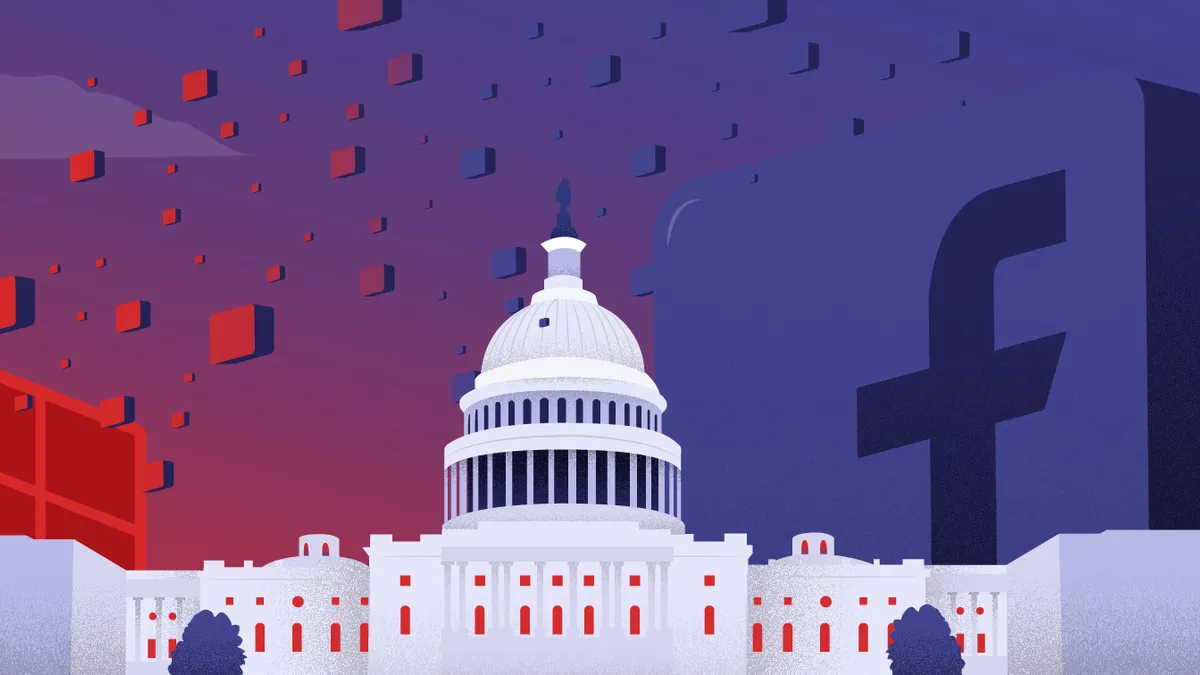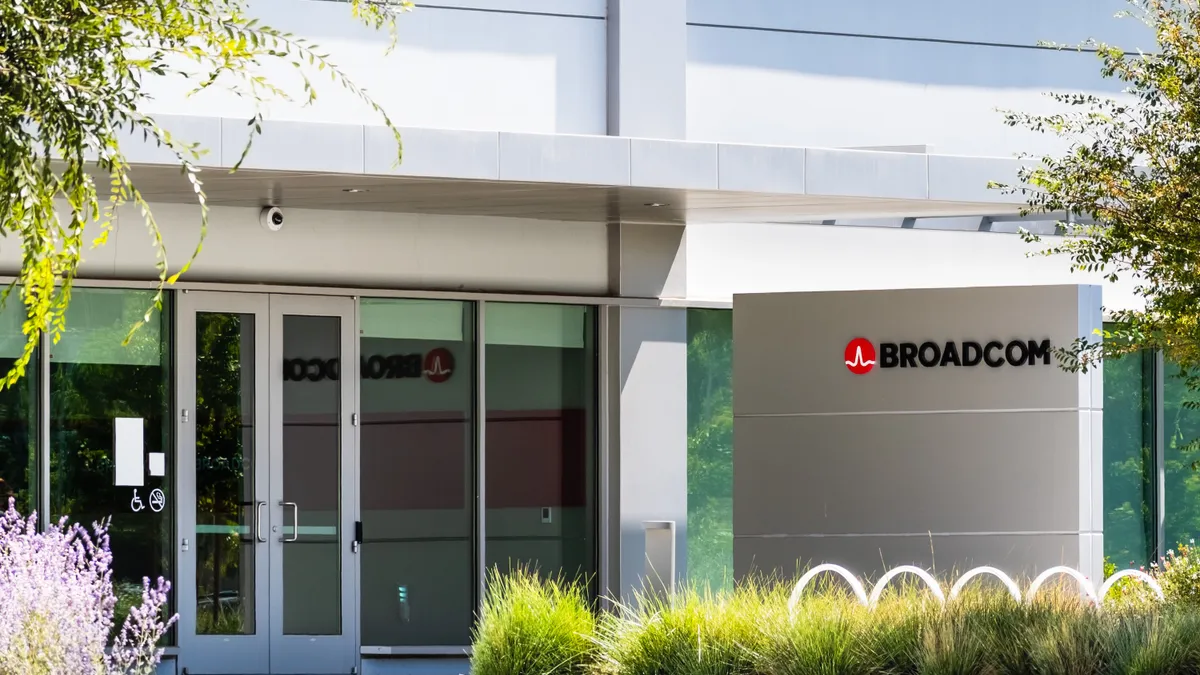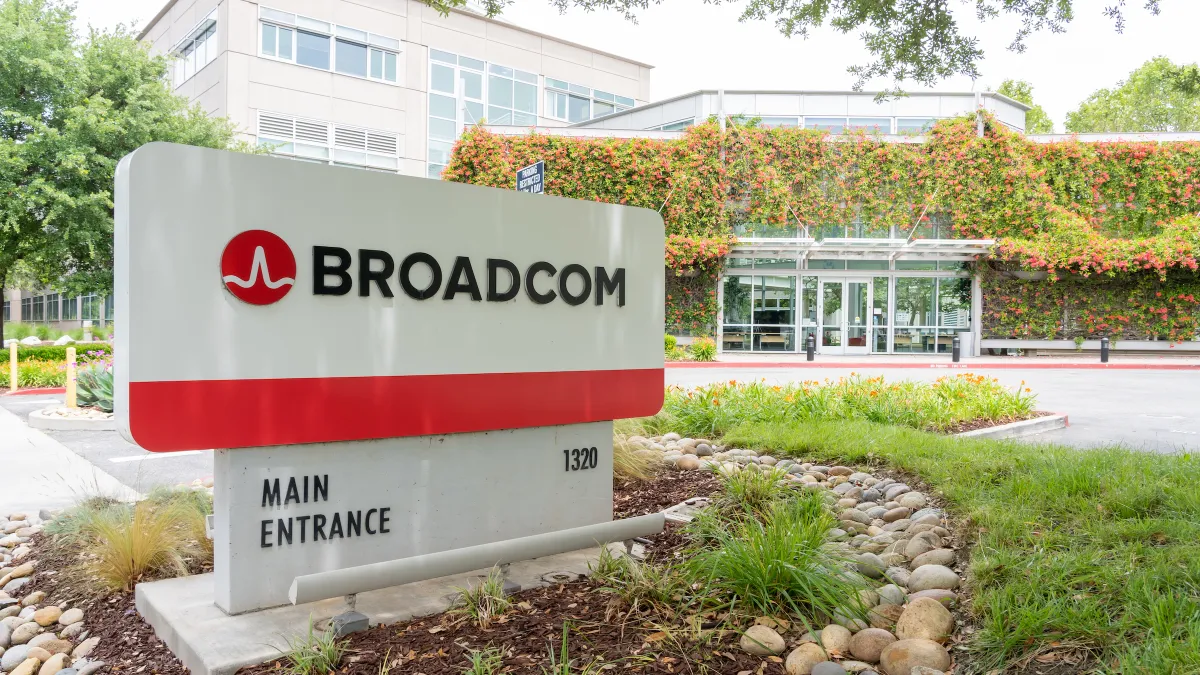More than 20 years ago Bill Gates sat on Capitol Hill defending Microsoft as it inched closer to becoming a monopoly of epic technological proportions.
In United States vs. Microsoft, the tech company was accused of antitrust violations. Before his hearing, Gates sent an internal memo, "The Internet Tidal Wave," to executives at Microsoft.
Gates outlined his desire for the personal computing juggernaut to take down Netscape, a competitor "born" on the internet. He was fearful "internet fans" would bind together to build a solution cheaper than the PC.
Because the internet "is the most important single development to come along since the IBM PC," Gates said, Microsoft needed something new.
Gates proposed bundling Internet Explorer with its Windows offering. The memo helped make a case against Microsoft and its anti-competitive behavior.
Gates' testimony foreshadowed today's big tech issues, which include trust and monopolistic desires. Since then, Microsoft made a comeback. It shed the bad reputation that originally landed Gates on the Hill.
Other tech companies and their founders have failed to learn Microsoft's lesson.
A conqueror's conquest
Big tech's innovators want to remain a step ahead of Washington. And when some legislators have served on the Hill for decades, it's easy for tech to maintain its lead.
Holding onto that lead can come at a price — namely, big tech's reputation.
"People are starting to lose faith in our technology overlords," said Mike Margolin, chief digital officer at RPA, in an interview with CIO Dive.
There are a number of ways the public can lose faith in companies, from unsavory business deals to unstable leaders and most recently, mismanaged passwords. But big tech's influence makes it hard, if not impossible, for the public to disown them.
Because Amazon, Google and Facebook are involved in so many industries, it's difficult to decipher where one business ends and another begins. Ethical dividing lines become blurry.
Big tech knows that "our fascinations are fuel." No matter what platforms consumers use, their data is likely to connect to a third party, according to Margolin. For example, "you can’t quit Amazon," even if an account is deactivated. Amazon’s hooks go beyond customer accounts and into other modes of retail.
"It's these companies that want to dominate the world and then for some reason get it in their head that they're helping the world."

Kara Swisher
Technology journalist and co-founder of Recode
Tech companies' ambitions threaten their reputations. "It's these companies that want to dominate the world and then for some reason get it in their head that they're helping the world," Kara Swisher, technology journalist and co-founder of Recode, told CIO Dive at an event in February.
In 1997, Sun Microsystems CEO Scott McNealy was called to testify before the committee because he was one of the few souls in the tech community willing to take on Gates and the Windows-maker. McNealy wasn't afraid.
"Microsoft has the power today to exercise predatory and exclusionary control over the very means by which we access [the] internet," said McNealy to the committee. "We think, left unchecked, Microsoft has a monopoly position," enabling the company to break into other industries including finance, media and ISPs.
The trajectory McNealy feared Microsoft would follow is eerily similar to other companies. Google is arguably a conglomerate with tech at its base. Facebook is broadening its reach beyond its founding market as well.
The social network has "bamboozled" the world into thinking it was just a tech company that has been able to "deal in and sell the benefits of its technology," said Hillary Sale, professor of law at Georgetown University Law, in an interview with CIO Dive.
"With great opportunity comes great responsibility and we have yet to see the companies take responsibility for their choices," said Sale. And right now "Facebook is probably the worst poster child" for owning up to why its reputation has taken so many hits recently.
Sitting on Capitol Hill
Last year, after the Cambridge Analytica scandal broke, Facebook CEO Mark Zuckerberg testified before Congress. He was brought to the Hill to defend his company from privacy and consumer trust concerns.
Though the reasons Gates and Zuckerberg were called before congress were different, their testimonies were similar in tone.
The founders had to explain their technologies to legislators who are, more or less, as technically informed as the people they represent. While legislators want to protect their constituents, but "the reality is they're trying to deal with a really chaotic environment," said Margolin.
These companies have taken the public into a time where their technologies are used freely with little understanding how it works.
"Once we found out how dangerous some of their choices were, including selling private data for profit, it raised understandable concerns regardless of our depth of understanding," said Sale.
"With great opportunity comes great responsibility and we have yet to see the companies take responsibility for their choices."

Hillary Sale
Professor of law, Georgetown University
Both founders allowed their defiance to show. Sale said Gates' Hill appearance was largely chalked up to "who do you think you are telling us what to do?" The strategy didn't pan out for Microsoft, which was found in violation of antitrust and later settled with the Department of Justice.
Gates' message in his testimony to Congress was essentially to leave innovators alone. As long as they produce no unintended consequence, choices of innovators should be left alone, according to Sale, "but that's completely unrealistic." Regulation exists to avoid unintentional consequences, not to stifle innovation.
In this case, Facebook cannot be left alone without consequences to users. It has taken Zuckerberg "a very long time to appear contrite and appear to take ownership," said Sale, something that will ultimately not assist Facebook's longevity.
His refusal to appear on the Hill initially, while sending Sheryl Sandberg in his place, "was a very large statement, one that didn't work for him," said Sale.
What's in a comeback?
The reputation of Gates and Microsoft today bears little resemblance to what it was in the '90s. Today, "if you merge the ambition of Bill Gates in the '90s with what his foundation, his wife's foundation, I think that's sort of what many people wish that technology companies would focus on," said Margolin.
Microsoft has narrowed its focus on enterprise technologies, to be a leader in cloud, AI and software as a service. "Leadership matters," said Swisher. Microsoft CEO "Satya Nadella's a terrific executive … Microsoft got back to what it did well."
Gates is no longer at the helm of Microsoft, but Zuckerberg is holding on tight to the chief executive role. Facebook is a publicly traded company, yet Zuckerberg maintains control over the board and dual class nature of their stock, which means he cannot be pushed out as CEO.
The "weakness of their governance and choices in part, can be accounted for because of those issues," said Sale.
There are also external forces that compell companies to change, whether they're ready or not. GDPR and California's data privacy law are turning up the volume on trust, regulation and big tech's responsibility.
As of March, 60% of consumers do not trust Facebook at all, according to an NBC News and Wall Street Journal poll.
"If you merge the ambition of Bill Gates in the '90s with what his foundation, his wife's foundation, I think that's sort of what many people wish that technology companies would focus on."

Mike Margolin
Chief digital officer, RPA
"Facebook is clearly facing a crisis of confidence in user trust," said Dan McCormick, COO and co-founder of Constructor.io, in an email to CIO Dive. And yet, the #deleteFacebook campaign that took off after Cambridge Analytica wasn't enough to do the company in.
Since last year, Facebook's confidence has been "slowly whittled away" following additional data breaches and Zuckerberg's lackluster calls for "public discussions about the future of technology in society."
Yet the other shoe continues to drop. Most recently, it was revealed Zuckerberg "oversaw plans" to use user data "as a bargaining chip" for companies it partners with, reported NBC News, which obtained the leaked company documents. Partners that would curry Facebook favors would be rewarded with personal data, or be deprived of it as punishment.
"At the end of the day, Facebook is nothing more than a Wall Street firm, a chemical company, a cigarette company, and I want them to stop telling me how wonderful they are for the world," said Swisher, "They're just selling a product and I want them to sell their product responsibly. I think that's not too much to ask."
There is no reliable time table that suggests when Facebook will be able to recover its reputation like Microsoft, but it can start the process.
Companies like Facebook and Google have the ability to dig themselves out if, first and foremost, they refrain from sharing personally identifiable information (PII) with third parties, said McCormick. "The modest gains it may bring are far outweighed by the risk to users' trust."
Withstanding from using PII is possible with today's machine learning algorithms, said McCormick. There is technology than can produce results "by observing and aggregating user behavior anonymously … without knowing the true identity of any specific user."




















